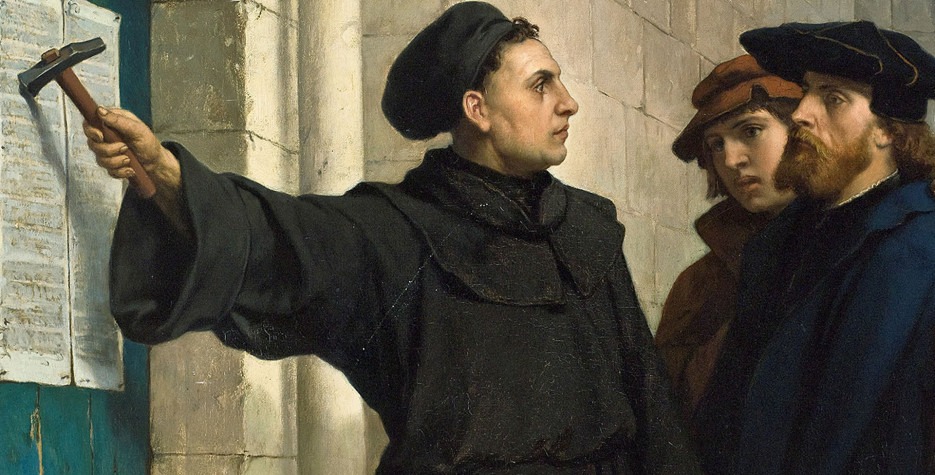Reformation Day in Chile
In Chile, this holiday is called 'Día Nacional de las Iglesias Evangélicas y Protestantes' and was established as a holiday in 2008.
It is usually celebrated on October 31st, but it may be moved to the preceding Friday if it falls on a Tuesday, or to the following Friday if it falls on a Wednesday
When is Reformation Day?
This public holiday is always celebrated on October 31st, except in Chile when it may be moved to a Friday depending on which day of the week it falls on.
History of Reformation Day
Reformation Day commemorates the day in 1517 when a German monk named Martin Luther (1483-1546) strode up to the church in Wittenburg and nailed his 95 'theses' (or propositions) to the church door.
Luther chose to do this on October 31st as he knew the church would be full on the next day for All Saints' Day.
Luther's intention when posting his theses was to highlight the practice of indulgences in the Roman Catholic Church. Indulgences were pardons from sin that could be bought, meaning that those who were rich enough could buy forgiveness for all manner of sins.
Luther had hoped that pinning his protestations would spark wider debate and harden public opinion against the practice.
However, so many people agreed with his ideas that they quickly spread across western Europe, helped by the recent invention of the printing press, leading to the religious revolt known as the Reformation.
The reformation led many Christians to break off from the Roman Catholic Church and establish new, independent churches of their own, such as the Lutheran Church.
The pivotal act would ultimately lead to the creation of the numerous Protestant denominations, so-called as they trace their theological lineage to this "protestation" of the Catholic Church.
In 2010, around 37% of all Christians around the world identify as Protestants, according to the Pew Research Center.
Reformation Day was first celebrated in the Germanic region in the seventeenth century and between 1949 and 1967, Reformation Day was a national holiday in East Germany.


